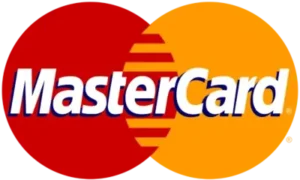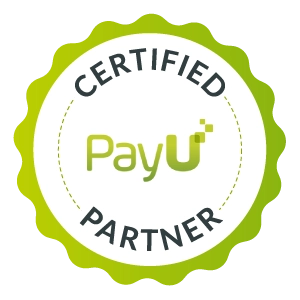
The Reasoning Behind Podcast Marketing
- Popularity: Podcasts have surged in popularity over the past few years. They’re extremely convenient, highly integrated into their listeners’ daily routines, and have a low barrier to put together for their creators.
- Engagement: Podcasts provide a far more personal touch when reaching an audience than written content. The human voice makes such a strong case for authenticity.
- Multitasking: People can listen to podcasts while driving working out, or doing chores. You thus reach them regardless of where they are or how busy their lives might be.
- The Power of Storytelling. Emotional Connection: Stories resonate emotionally, and emotion leads to action. Make each of your podcast episodes about something your audience can rally around.
- Your Podcast Marketing strategies Journey Begins. Keep in mind that your business has an opportunity to make a strong impression on the market through your use of podcast marketing strategies. In the upcoming posts, there will be enough strategic insights on how to harness the power of podcasts to the fullest.
Understanding Your Target Audience for Your Podcast Marketing Strategies
- Define your target audience. Entrepreneurs and business owners: These people are either brand new to entrepreneurship or still in the fledgling stages of their business career.
- Digital Marketing Aspirants: These people are eager to learn digital marketing strategies and are now learning from an expert like yourself.
Why Audience Understanding is Important
- Tailored Content: having your audience defined means you can create content that speaks to their needs, problems, and dreams.
- Effective Messaging: make episodes that pin-point a problem or two and then provide actionable solutions.
Building Community around Your Podcast
- Understanding the people you aim to reach will help you create a podcasting community. Invite your audience to get involved as much as possible via comments, social media, and Q&A sessions: Encourage them to make recommendations.
Demographics
- Your age, location, and industry will determine your demographic segmentation. Your content should be adjusted accordingly.
Psychographics
- Find out what drives them; what else do they enjoy, and what isn’t working for them? Do they have nightmares about anything in particular? How can your podcast make a difference?
Empathy and Connection
- Niche down: walk in their shoes, and identify. What are the obstacles they face during their digital marketing travel?
- Be yourself: tell your true story of how and what it took. Authenticity creates a connection and keeps people returning time after time.
2. Social Media Channels for Your Podcast

Social media is likewise crucial for attracting as many listeners as possible. Here’s a summary of what social media channels can assist you in promoting your podcast:
Choose the right platforms.
- Aside from other efforts, create a Facebook page dedicated to your podcast. You may use it for post-episode introductions, comments about episodes, behind-the-scenes videos, and Q&A polls with your listeners.
- Twitter: Post short editing clips, thrilling inquiries, and quotations from your episodes and your story, and utilize the trending issues to achieve a larger audience scope.
- Instagram Stories Shared Image Quotes Photos Short Video clips Cover art Use Instagram Stories across your snippets and images as a full-episode teaser and encourage your followers to “swipe up” to listen to the entire episode.
- LinkedIn: Post valuable development ideas and conference industry movement.
Content Creation
- Visuals: eye-catching imagery and participant artwork, such as episode ads and posters via social media. Visuals grab attention and are commonly used across social networks.
- Clip Teasers: Create Figure clips on the most intriguing moments of the show, which last between thirty and sixty seconds, to get audiences excited about the next edition.
- Live Session info: Modes make you live on Facebook live social media. In the queries and replies section, debate the latest events, and just utilize your stories.
Hash Tags
Research-related Hashtags:
- Identify common hashtags for digital marketing, entrepreneurship, and podcasting and churn out the related hashtags that are being most frequently used.
- Utilize the researched hashtags in your posts whenever possible. Use “Ride the Trends”: In this case, you are also watching trending topics and conversations; anything that is trending gets more visibility.
Consistency is Key!
The more consistent you are, the more engagement increases for this use.
- Regular Updates: always be consistent in posting on social media, make a routine or schedule, this creates anticipation and your audience is always hungry for your posts.
- Cross-promotion: work with other podcasters if you wish to increase the scope of your podcast. This can give you access to different groups of listeners.
- Collaborate with Influencers: collaborate with other influencers or interview them to increase the podcast’s reach. Influencers may promote your podcast for free. these are a great way to promote your podcast marketing strategies.
Podcast SEO
- Optimizing a podcast for a search engine helps a podcast reach a larger target. Here are some approaches to maximizing your podcast marketing strategies:
Keyword Research
- Focus Keyword: For your podcast marketing strategies,The main keyword is already defined at the beginning of the article such as in this article “Podcast Marketing Strategies.”
- Long-Tail Keywords: Discover other related long-term keywords, such as “Efficient podcast promotion” or “Board Audience to Podcast.” Google keyword planner or Ahrefs may be used to determine this term. This will really help you build your podcast marketing strategies.
Episode Titles: Descriptions
- As previously stated, the primary keyword can be naturally integrated into the episode title. In the episode summary, as mentioned previously, try to elaborate.
Transcripts
- Transcribe Your Episodes: You can use transcripts, which are gold mines for SEO. It allows search engines to crawl and index the text, making your content findable. Additionally, inserting your focus keyword into your transcript seamlessly and naturally is a recommended SEO practice that puts openness and readability first.
Podcast Website Optimization
- SEO-Friendly URLs: make sure that your podcasting website URLs are clean and fully descriptive, including keywords where necessary.
- Meta Tags: optimize the meta titles and descriptions for every SEO episode, which are shown in search engine results pages or SERPs.
- Structured Data Markup: add structured data or schema markup to help search engines understand your podcast better.
- Quality backlinks: encourage backlinking to your podcast episodes from other websites or blogs, as high-quality backlinks boost your SEO.
- Promote on social media: share your episodes on various platforms, as social signals affect your search rankings.
- Mobile-Friendly Design: ensure that your podcasting website is mobile-first. Google prioritizes mobile-first indexing.
- Consistent Publishing: By regularly releasing new SEO episodes, the search engines will consider your SEO fresh and relevant.
- Patience: SEO is a work in progress that takes time. Review your search rankings, adjust your strategies, and, most importantly, be patient.
The Power of Email Marketing
Building Your Email List
- Start early: collect email addresses from day one, encourage your listeners to subscribe to a podcast newsletter or other updates, and create dedicated landing pages on your website where visitors can sign up for podcastically-related emails.
- Offering incentives: encourage your visitors by giving them exclusive content, bonus episodes, or a resource guide.
Crafting Engaging Emails
- Segmentation: segment your email list based on listeners’ preferences, engagement levels, etc.
- Addressing subscribers by name as personalized emails have higher open rates
Promoting New Episodes
- Prepare a few pre-launch emails: These emails will promote the upcoming episode a few days before release, building anticipation. Additionally, email on the same day of the launch.
- Make sure to include a short summary of the new episode and a direct link to listen. Follow-up with new content. Send a follow-up email a day or two after release. Provide additional ideas or resources for the new episode.
Call-to-Action
- Be clear about what you want your subscribers to do. Every email should have a goal: perhaps you want your subscribers to share, review, or visit your website. Use urgent language like “Last chance” or “Limited time offer.”
Drip campaign
- Schedule a sequence of automatic emails that are delivered in a series over time. Use drip campaigns to manage relationships over time.
Analyzing Metrics
- Open rates: Check how many of your subscribers open your emails.
- Click-through rates (CTR): Measure how many people click on links from your email. Make sure your CTA is clear and appealing.
- Unsubscribes: See how many subscribers are leaving. Learn from them and use that information to improve your email content.
Consistency and respect.
- Consistent Schedule: Create a schedule for your emails. Whether weekly, biweekly, or monthly, show them the success of your email campaign.
To be successful with your podcast marketing strategies, be genuine, relatable, and authentic about your brand. Authenticity resonates with listeners and keeps them coming back. Consistency Matters: Regularly release high-quality episodes. It helps build anticipation and trust. Engage with your audience through social media, email, and collaborative efforts. Foster a community around your podcast. Optimize your podcast content for search engines. Keywords, transcripts, and backlinks are crucial: craft bonus episodes, sneak peeks, and exclusive offers. Keep your audience intrigued. Remember, podcasting is an exciting journey—a blend of creativity, strategy, and connection.














